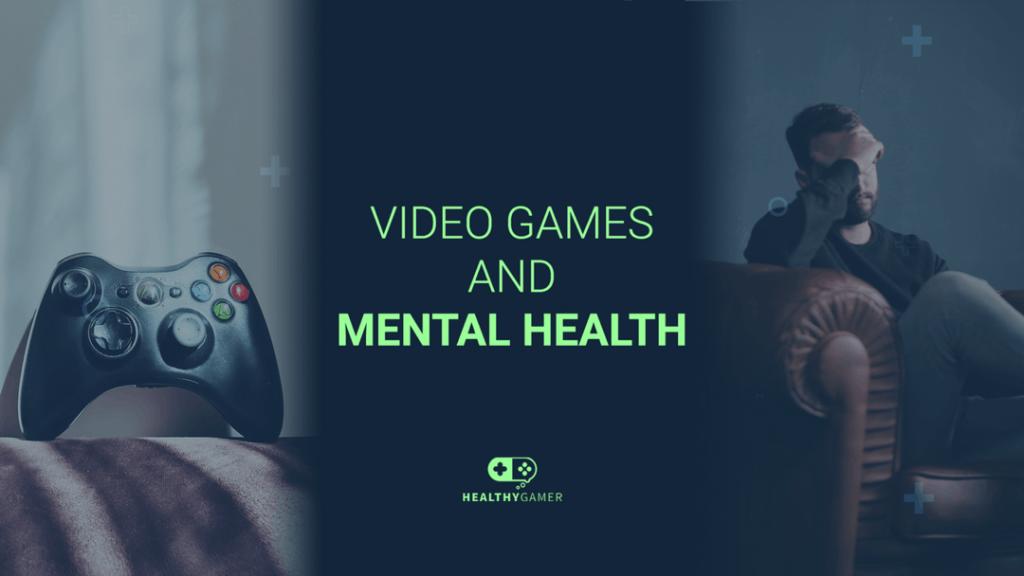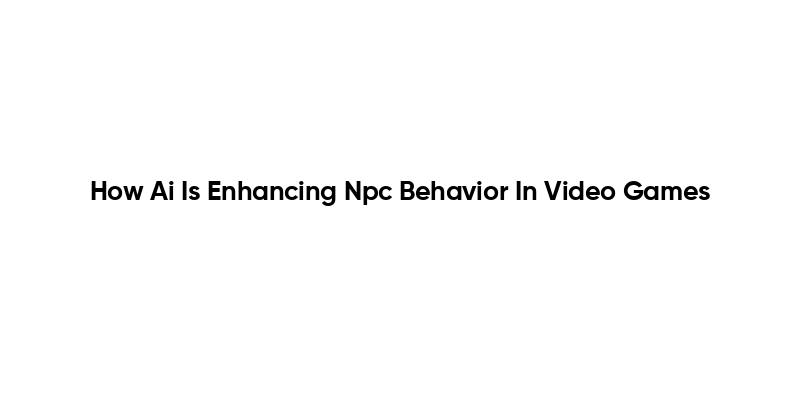Video games and mental health are interconnected in fascinating ways, offering players not just entertainment but also emotional support. Recent studies illustrate the positive impact of video games on mental health, showing how immersive experiences can act as a balm during tough times. Cozy games for wellbeing, like *Animal Crossing* and *Stardew Valley*, provide therapeutic environments that help alleviate stress and foster mindfulness. However, gaming can also serve as a powerful tool for emotional processing and resilience, offering narratives that empower players to face their own challenges. As we explore the multifaceted relationship between video games and escapism, it becomes clear that these interactive experiences can inspire strength and connection amidst life’s adversities.
The realm of interactive entertainment, often referred to as gaming, significantly influences our psychological well-being. The phenomenon of utilizing video games for emotional relief highlights their role as a safe haven where individuals can confront personal struggles. Titles designed for soothing experiences or cozy gaming create an environment that nurtures relaxation and reflection, while other narratives challenge players to thrive amidst adversity. Gaming for emotional support is a popular notion as it fosters a sense of community and resilience, showcasing the impactful stories that accompany engaging gameplay. By examining how these digital experiences shape our approach to mental wellness, we can better appreciate their potential for healing and growth.
The Healing Power of Video Games on Mental Health
Video games have emerged as a crucial avenue for mental health improvement in today’s challenging climate. Studies highlight a growing recognition of the positive impact that gaming can have on emotional well-being. Research indicates that engaging in interactive experiences can mirror the benefits of meditation, leading to reduced anxiety and stress levels. These virtual worlds become safe havens for players, allowing them to escape their daily struggles and find solace in immersive gameplay, thereby enhancing their mental resilience.
Particularly during unprecedented times when feelings of despair and overwhelm permeate our daily lives, video games serve as a much-needed reprieve. Titles like ‘Animal Crossing’ and ‘Stardew Valley’ foster a sense of community and belonging, ultimately aiding players in navigating their mental health challenges. The similarity in psychological benefits between gaming and mindfulness practices emphasizes the significant role video games can play in promoting mental wellness.
Cozy Games for Wellbeing: Escaping Reality
Cozy games have garnered popularity for their ability to transport players away from daily anxieties. Games such as ‘Fields of Mistria’ and ‘Hello Kitty Island Adventure’ exemplify this genre, offering relaxing environments where players can unwind. They not only provide an escape but also engage players in rewarding activities that promote a sense of accomplishment without the associated pressures often found in more competitive gaming environments.
These cozy experiences not only entertain but also encourage nurturing behaviors and self-care, which are vital in today’s fast-paced world. The overwhelming reception for these games is attributed to their focus on positive, feel-good narratives that contrast sharply with the often harsh realities of life. Players often find themselves engaged in soothing tasks that allow them to slow down and reflect, contributing to a marked improvement in their overall mental health.
Gaming for Emotional Support: Finding Companionship in Virtual Worlds
The notion of gaming as a source of emotional support underscores the communal aspect of video games. Multiplayer experiences, especially during isolating times, foster connections between players, helping them combat loneliness and forge new friendships. Games like ‘Final Fantasy XIV’ not only provide engaging gameplay but also create a supportive community where players can share their real-life struggles and provide encouragement to one another.
This emotional camaraderie enhances the gaming experience, turning it into a tool for healing and understanding. As players navigate challenges together, they often find a sense of belonging that transcends the virtual world. This newfound support system can greatly benefit those facing mental health issues, demonstrating that gaming isn’t just an escape, but also a pathway to building meaningful relationships.
The Role of Escapism in Video Games
Escapism has long been a defining feature of video games, allowing players to detach from reality and immerse themselves in fantastical realms. This capacity to escape mundane or challenging situations can be beneficial, providing temporary relief from the stresses of life. Games crafted with rich narratives and expansive worlds grant players a break from their own challenges, enabling a recharged perspective on their real-life issues.
However, it’s essential to strike a balance between escapism and reality. While video games offer temporary relief, they can also inspire players to confront real-life difficulties with renewed vigor. This duality highlights the complexity of gaming as a coping mechanism, reinforcing the idea that while it’s a means of escape, it can also serve as a profound reflection of life’s obstacles and triumphs.
Games that Inspire Resilience and Strength
Narratives that focus on resilience have a powerful influence on players, often inspiring them to confront their own struggles. Games like ‘Dark Souls’ or ‘Persona 5’ portray challenges that require perseverance and courage, mirroring real-life battles against adversity. These plotlines resonate strongly with individuals seeking motivation, revealing that resilience is not just about overcoming defeat but also about personal growth through continued effort.
The lessons ingrained in these stories remind players that setbacks are a natural part of life. By engaging with characters who embody resilience and bravery, players can glean insights into their own lives, translating in-game victories into real-world courage. This transformative effect emphasizes the role of video games as not only sources of entertainment but also as meaningful catalysts for personal development and emotional strength.
Finding Joy Through Gaming Amidst Turbulent Times
In times of crisis, finding joy can feel like a daunting task. However, video games offer a sanctuary where players can revel in simple pleasures, crafting moments of happiness amidst the chaos. Titles that emphasize creativity and exploration invite players to savor the little things, reminiscent of finding warmth in a cozy nook during a storm.
Engaging with these games cultivates a proactive approach to happiness, encouraging individuals to seek out joy despite external circumstances. Whether it’s through whimsical adventures or heartwarming interactions, the joy derived from gaming can serve as a powerful antidote to negativity, reinforcing the importance of finding and creating happiness.
The Impact of Storytelling in Video Games on Wellbeing
Video games are not just about gameplay mechanics; they are vessels for storytelling that influence our understanding of the world around us. The narratives they convey resonate deeply with players, often reflecting personal experiences, aspirations, and fears. This connection can be therapeutic, allowing players to explore complex emotions through the lens of characters who exhibit similar struggles.
Through shared experiences in gaming, players can find comfort and validation. These stories of triumph, defeat, and redemption play a crucial role as they allow individuals to process their feelings in a secure environment, which can lead to improved mental health outcomes. Ultimately, the narratives crafted in video games can empower players to confront their own reality with a sense of hope and compassion.
Addressing Mental Health Through Game Design
As awareness of mental health continues to grow, so does the responsibility of game designers to incorporate themes that support emotional well-being. By thoughtfully integrating narratives that address societal issues, designers can create impactful experiences that resonate with players on a personal level. Games like ‘What Remains of Edith Finch’ highlight themes of loss and reflection, encouraging players to engage with their emotions while navigating the narrative.
By placing mental health at the forefront of their designs, developers are not only providing entertainment but also creating tools for healing and understanding. These artistic endeavors remind us of the power that stories possess to shape our perceptions and foster empathy, ultimately leading to a more compassionate gaming community.
Embracing the Complexity of Life Through Video Games
The multifaceted narratives embedded within video games offer players a unique lens through which to explore the complexities of life. While some narratives may focus on fantastical elements, many draw from real-world issues, illustrating themes of loss, resilience, and hope. Characters’ struggles with mental health or societal pressures can reflect our own experiences, fostering a sense of connection that validates player experiences.
This exploration of life’s complexities encourages players to embrace their own challenges and recognize the strength they possess. As they navigate through these digital stories, players may find inspiration in the trials faced by their favorite characters, prompting them to confront their fears and embrace their journeys with newfound courage.
Frequently Asked Questions
What is the impact of video games on mental health?
Video games can have a significant positive impact on mental health by providing escapism and emotional support. Studies indicate that video games, particularly cozy games like Animal Crossing and Stardew Valley, are comparable to meditation in their ability to reduce stress and promote relaxation. Moreover, engaging with narratives of resilience in video games can foster a sense of empowerment, making players feel capable of overcoming their own challenges.
How can cozy games promote well-being?
Cozy games, such as Fields of Mistria and Hello Kitty Island Adventure, promote well-being by creating comforting environments that allow players to unwind and find joy. These games often involve simple, rewarding gameplay and positive narratives that can alleviate feelings of anxiety and enhance emotional stability, making them excellent tools for self-care during difficult times.
Can gaming serve as emotional support?
Absolutely! Gaming can serve as a form of emotional support by providing players with virtual spaces where they can connect with stories and characters that resonate with their personal experiences. Games often depict themes of resilience and caring for others, fostering empathy and encouraging players to navigate their feelings, thus offering much-needed comfort during challenging periods.
What types of games help with escapism and mental health?
Games that encourage escapism and positively affect mental health include RPGs (role-playing games) like Final Fantasy VII and Mass Effect, which feature narratives of resistance against oppression. These games not only offer engaging gameplay but also present complex stories that allow players to explore themes of hope, bravery, and self-discovery, making them excellent choices for emotional and mental engagement.
How do video games encourage resilience in players?
Video games encourage resilience by presenting challenges that players must overcome, paralleling real-life struggles. Titles like Metaphor: ReFantazio and the Persona series showcase characters who strive against adversity, highlighting the importance of empathy, kindness, and resilience. By navigating these narratives, players can learn to develop similar skills in their own lives.
What are some games that inspire resilience and hope?
Games such as Death Stranding, Dishonored, and the Soulslike series (including Demon Souls and Elden Ring) inspire resilience and hope by placing characters in situations where they must help others and confront difficult truths. These narratives promote the idea that even in dark times, players can achieve growth and make meaningful contributions to their in-game worlds and beyond.
| Key Point | Explanation |
|---|---|
| Impact of Games on Mental Health | Video games can play a significant role in processing emotions and enhancing joy during difficult times. |
| Healing Power of Cozy Games | Games like Animal Crossing and Stardew Valley positively impact mental health, comparable to meditation. |
| Desire for Empowering Narratives | Players often seek stories of resistance and hope in video games, reflecting a need for inspiration and bravery. |
| Role of Characters in Games | Characters like Barrett from Final Fantasy VII embody virtues such as love, bravery, and self-sacrifice, motivating players to be ‘helpers’. |
| Games as Reflective Art | Video games encapsulate human experiences, hopes, and fears, serving as a means to foster empathy and a sense of community. |
Summary
Video games and mental health are deeply interconnected, revealing that gaming can significantly alleviate feelings of dread and anxiety. The exploration of empowering narratives and characters through various gaming experiences can cultivate a sense of hope and community. As players engage with these stories, they often find solace and bravery that translates into real-life resilience. Ultimately, the blend of escapism and reflection in video games allows individuals to process their emotions while reminding them of their inherent strength and capacity to help others.



